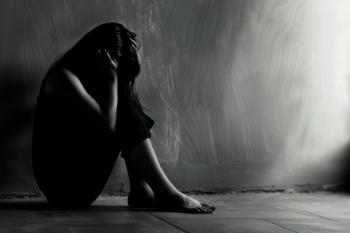
Personal Reflections on Climate Change
A psychiatrist reads the news and responds with art.
I was inspired to write a poem while I was preparing for a “Deep Dive” virtual weekend retreat with the
I was also inspired by insights I have received from my Black psychiatric colleagues, who have helped put the climate crisis into proper perspective as a result of their resilience in the face of the disproportionate adverse environmental impacts and threats to their very survival, both individually and collectively. Addressing the climate crisis is inextricable from the fight for social justice, including systemic racism and health care inequities, which have been become more obvious than ever during the coronavirus pandemic. As environmental and health care organizations, as well as other socially conscious movements, awaken to the interconnectedness of these problems, they also need to tap into the wisdom of indigenous cultures that have always had a respectful, interconnected relationship with the natural world. The impact of industrial society’s relationship to the environment is now placing extreme strain on both the ecosystem and the societal structures that depend on it. It is also important to remember despair—in the words of former Vice President Al Gore—“is just another form of denial.” We are all connected and need each other to meet the daunting challenges we all face.
Tidal Wave
I was dreaming of what I read:
Fire in the Mohave desert
Burning up every Joshua tree for God knows how long
Forever? No please
No please
But the brome grasses, the fake bromes and the other invaders, squeezing out the natives, burning at super hot temperatures, incinerating the native seeds, drying out the land, opportunists creating More of themselves!
Feeding the wildfire cycle—No, damn!
Another vicious feedback loop!
But hopelessness is not in my skill set
So the dream shifted and I realized (again) that I could fly
And I was showing you, my friends
How easy it is
You just will it and turn and you move as you will
So now we’re all flying, feeling so free
And looking up:
The Tidal Wave
that Government Behemoth waking up
After four years of slumber,
“Departments of Science,” bringing back scientists
Listening to scientists!—imagine that!
That Tidal Wave already dousing the flames
With promised moisture…
But flying to the top we saw
The wave wasn’t high enough—not nearly!
Carbon neutral by 2050? 30 years, really? Are you kidding?
Not even 3 years!
Did you forget about
One-hundred-fifty thousand
California wildfire refugees last summer
In 3 months
But despair is not in our lexicon
And as we glide down, floating now, gently touching down
In Houston and New Orleans I hear my black and brown brothers and sisters say: “This is nothing!”
They tell us:
“We know our earthly home is burning, drowning, toxifying, and
sometimes we can’t breathe!
But we know about survival!
We will survive this too! (As we always have)
Walk with us, listen to us
And we will teach you”
Yes! we will walk together, learn from each other
And we will gather our native sisters and brothers building strength
Building resolve
The Tidal Wave growing
Joined by the Navaho, the Cherokee,
the Mohawk and the Swinowish
And we all stand together again
with the Standing Rock
And we walk together
Through flames and floods and furors
We survive
We thrive
We fly!
Dr Fleming is the chair of the American Psychiatric Association’s Caucus on Climate Change and Mental Health, member of the APA’s Committee on Climate Change and Mental Health, and member of the Steering Committee on Climate Psychiatry Alliance.
Newsletter
Receive trusted psychiatric news, expert analysis, and clinical insights — subscribe today to support your practice and your patients.







